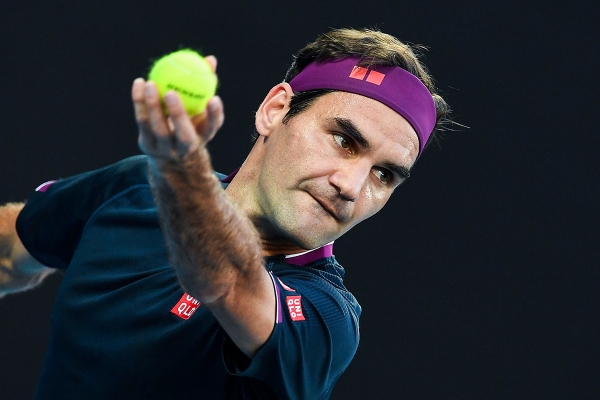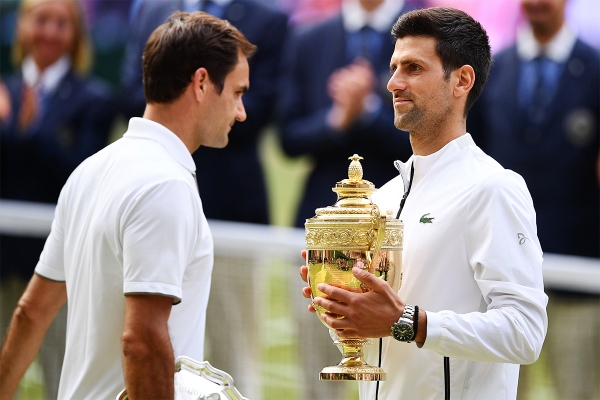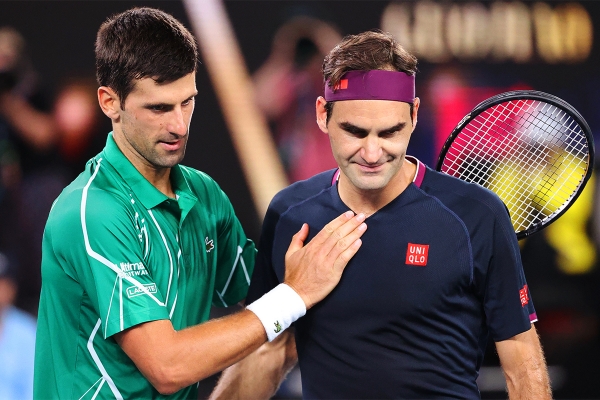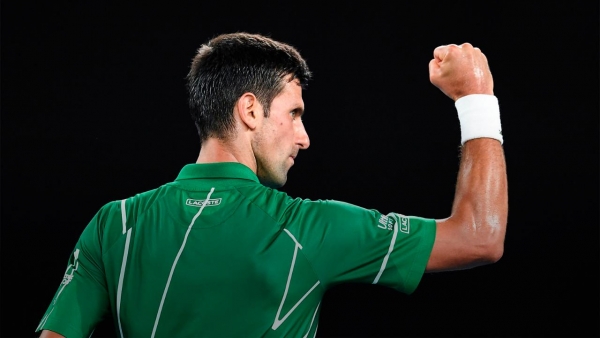It is difficult to discern what drives the raucous ovations for Roger Federer in a packed arena in this, the twilight phase of his career.
For many, it is an unwillingness to ever see the 20-times Grand Slam champion beaten.
For others, it is the realisation that while greatness stands the test of time, brilliance fades, an acceptance this could well be their last chance to see the 38-year-old play at Rod Laver Arena.

Federer acknowledges as much, but even in the face of an injury-impeded loss to his great rival Novak Djokovic, he provides hope he will swing by chasing a seventh Norman Brookes Challenge Cup.
MORE: Novak flicks Federer aside to make decider
“You never know what the future holds, but especially my age, you don't know,” Federer offered. “I'm confident. I'm happy how I'm feeling, to be honest. I got through a good, nice training block. No plans to retire.
“From that standpoint, we'll see how the year goes, how everything is with the family. We'll go from there. Of course, I hope to be back.
The prospect of adding to an already hefty Grand Slam haul or at least doing some damage to prevent others adding to theirs still burns.
There was no doubt or hint of hesitation in his response to whether his tally could rise to 21.
“Yes, I do believe that,” Federer said. “I think by having the year that I had last year, also with what I have in my game, how I'm playing, I do feel that.”
The Swiss has already outlined plans to contest the Tokyo 2020 Olympic Games immediately after Wimbledon.
That at least locks him in for a shot at a ninth trophy at the All England Club, and a chance to bury harrowing memories of missing two championship points against Djokovic in last year’s final.
Federer said at the time he’d have rather fallen in straight sets than come so close, only to have victory snatched from his fingertips.

He did gain some revenge over the Serbian in the round-robin phase of the ATP Finals last year, but Thursday night was their first rematch where it really mattered – on a Grand Slam stage.
On the muggiest night of the Australian Open this year, Federer bolted out of the blocks, and those raucous ovations were at fever-pitch when he had triple break points for a 5-1 lead in the pair’s 50th showdown.
The crowd knew it and both Djokovic and Federer acknowledged it after the match – the Swiss had no choice but to go for broke early on.
Two five-set battles back from the brink over John Millman and Tennys Sandgren – the latter in which he saved seven match points – had taken their toll. Federer had sustained a groin injury and left the court to have it treated again after eventually dropping the opening set to Djokovic in a tiebreak.
“I was playing with nothing to lose obviously,” Federer said. “I was just trying to take big cuts at the ball, trying to keep the rallies to a minimal, make sure I keep him off guard, mix it up as much as I can. I think I returned really well in the beginning. Got some really good connections going.
“Unfortunately I was not able to serve it out. To be honest, I feel like I should have found a way to do that, but wasn't able to.
“We know how tough he is, especially when you give him too many second serves. Obviously was better on the day today, there's no question.”
Only once had he beaten Djokovic from a set down, and never before in a slam. This would be no exception as the Serbian charged through to his eighth Australian Open decider, 7-6(1) 6-4 6-3.
This was Federer’s sixth successive defeat at a slam to a man who now led their ledger 27-23, with their Wimbledon semifinal in 2012 the last time he had claimed the honours
“Look, overall, at the end of the day I guess I'm very happy,” Federer said of his tournament.
“I’ve got to be happy with what I achieved. It was the maximum to go to get at this tournament, especially after the Millman and the Sandgren match.
“Today was horrible, to go through what I did. Nice entrance, nice send-off, and in between is one to forget because you know you have a 3 per cent chance to win.
“You know, got to go for it. You never know. But once you can see it coming, that it's not going to work anymore, it's tough.”

An exhibition match in his mother’s homeland, South Africa, against his other great rival Rafael Nadal was on the horizon.
Confident the groin ailment would not sideline him for long, there was still the same deadpan delivery when questioning turned to whether Wimbledon was his best chance to add to his trophy haul this season.
“Probably Basel or Halle,” he quipped. “Less matches to play.”
